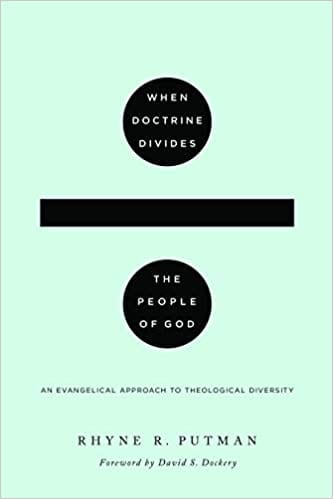There are few books out there in the Evangelical world of scholarship that cover the waterfront that this one does on hermeneutics, Biblical exegesis, theology, doctrine, and why Christians differ and can disagree without being disagreeable. I loved this book, and remarkably it is typo free. It not only diagnoses why equally devout Biblically focused Christians disagree (there are many reasons), but he helps us see what are first, second and third order doctrines, and makes clear that we ought to be able to agree on the first tier ones (and how most disagreements have to do with third tier ones, and with people not making the main thing, the main thing). The tone of this book is irenic and helpful from start to finish, and it is more than just a faint plea ‘can’t we all just get along’. It really does excellent logical analysis of both our problems and some possible solutions, while giving us a short course in the three kinds of reasoning— deductive, inductive, and abductive. Here below is the Intro on Amazon about this 300 and some page book—-
“As evangelicals, we desire to be biblical―we want our doctrine to be rooted in the Bible, our lives to be guided by the Bible, and our disagreements to be resolved by the Bible. And yet, conflicts within our church communities continue to appear and seemingly multiply with time. Interpretations of the Bible and deeply held convictions often put Christians at odds. Encouraging us toward grace in disagreement and firmness in truth, Rhyne Putman reflects on how Christians can maintain the biblical call for unity despite having genuine disagreements.”
One of the notable parts of the discussion in this book is showing how some doctrines, like the doctrine of the Trinity are not fully articulated in the Bible, and so require some further explication based on the raw data in the NT that does support such a notion. This means that while the Bible is that by which all theology is normed, nevertheless not all necessary Christian exposition of essential doctrines is found in the ad hoc material in the Bible. That means that later traditions based on Scripture but spinning things out to their logical conclusion are necessary for a Biblical faith and theology. Hence the need, for example, of having the creeds like the Apostle’s Nicene, and Chalcedonian creeds. Yet even they must be carefully critiqued on the basis of Scripture.
I know of no book that can better help Evangelicals work through their differences in theology and practice than this one. It is very helpful and does indeed place the emphases on the right syllables.













